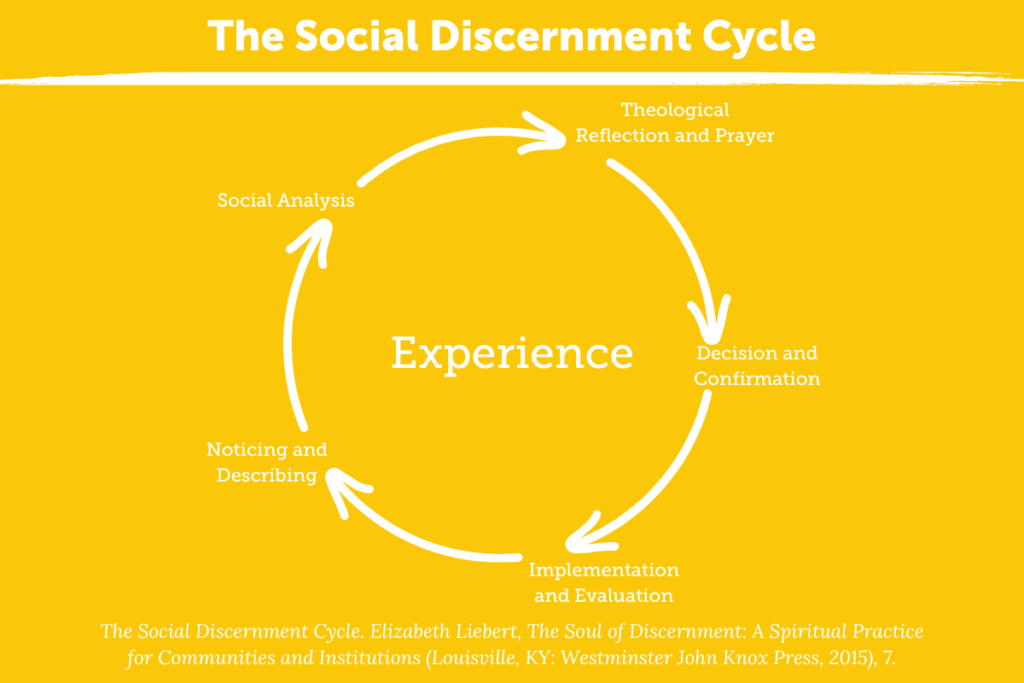- Community Discernment for Episcopal Parishes
- Seeking God’s Call in Our Backyard: Social Analysis and Theological Reflection
- Contemplative Action: What is God calling us to do?
Grants from ECF are intended to help parishes in the Diocese of Atlanta deepen their impact in the community. We often receive grant requests for existing ministries which are looking to increase their capacity or have a capital need. But occasionally we receive requests that involve a new partnership. These result from a parish examining their community and identifying an unmet need where the parish can get involved. Before the grant request ever reaches ECF, a process of community discernment has already taken place.
What is community discernment?
Theologian Elizabeth Liebert has helpfully constructed a model for community discernment which she calls the Social Discernment Cycle:
- Social: “it deals primarily with human communities in their social-structural, rather than interpersonal, aspects”
- Discernment: “it is a process for seeking God’s call in a particular situation”
- Cycle: “one completed round of discernment prepares for the next”[1]
This method for community discernment seeks to help groups answer the question: “How is God leading us, individually or together, to act in this particular moment in our organization?”[2]
Understanding the Social Discernment Cycle
When a parish identifies a need within the community where they want to take action, it can be daunting to move from a place of calling to a place of action. This is particularly true if the parish has no prior experience with that particular community need. This is where the Social Discernment Cycle can be incredibly valuable. This process is designed to work with parishes and communities (systems) of all sizes. It helps us to “take concrete steps in the face of systemic complexity.”[3]
However, this is not another corporate model that has been applied in a church setting. The Social Discernment Cycle was developed for use in the context of pastoral planning. Theological reflection and prayer serving as a core step in the process. So how can a parish move from a place of curious observation and thoughtful discernment to implementing a new ministry and evaluating its effectiveness? Over the next several months, we’ll explore how to use the Social Discernment Cycle in your ministry.
Starting With Observation
By using the spiritual practice of the Examen, we can observe what is happening in our congregation and in the community we serve. This discipline can be done individually, with members of the parish or an outreach committee practicing the Examen on their own during a period of discernment. Additionally, this practice can be adapted for group use at the end of each meeting. The intention of regularly practicing the Examen as a group is that, over time, your group will gain a heightened sensitivity to how you are working in cooperation with God.[4] This awareness grounds the group’s discernment in the stirrings of the Holy Spirit as you navigate the complex systems in which our communities operate. Challenge yourself to practicing the Examen personally as you begin the Social Discernment Cycle in your context!
Have questions about applying for ECF funding for your new ministry? Please contact us! We are happy to talk with you about your project and how we might partner together to create lasting change!
[1] Elizabeth Liebert, The Soul of Discernment: A Spiritual Practice for Communities and Institutions (Louisville, KY: Westminster John Knox Press, 2015), 1.
[2] Liebert, 2.
[3] Liebert, 3.
[4] Liebert, 34.


